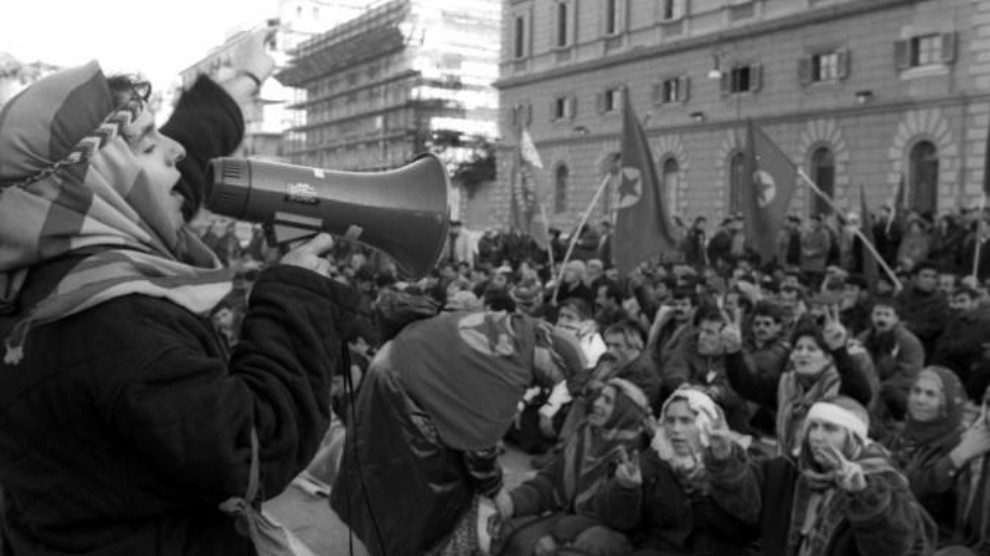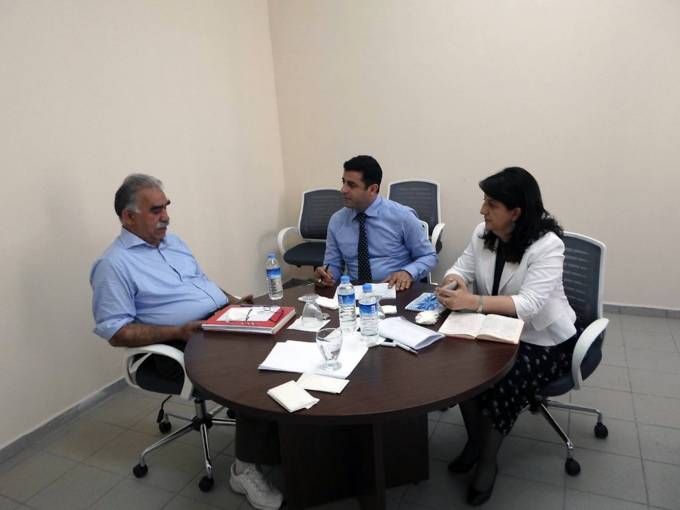The capture of Öcalan in Kenya is seen by Kurds as an international plot for several reasons. The debate regarding the conformity of Öcalan’s abduction and subsequent imprisonment with international law persists to this day.

Monday marks 25 years since Abdullah Öcalan, the founding leader of the Kurdistan Workers’ Party (PKK), left Syria, where he had been residing for 19 years. His departure came at the request of the Syrian government, as Turkey amassed troops along its Syrian border, threatening its southern neighbor with an invasion of Damascus unless Öcalan was deported. Compelled to leave, Öcalan embarked on a journey to Europe on October 9, 1998, aiming to advocate for a political resolution to the Kurdish question.
This journey culminated in his arrest in February 1999, viewed by the Kurdish community as the result of an international conspiracy involving the security services of various nations, including the CIA, MI5, and Mossad.
The debate regarding the legality of Öcalan’s capture and subsequent imprisonment continues to reverberate, while Kurds and supporters of the Kurdish freedom movement worldwide unite each year on October 9 to protest his incarceration, considering it the genesis of this international conspiracy.
Here’s how events unfolded:
On August 28, 1998, Öcalan declared a ceasefire and proposed a democratic solution to the Kurdish question in a live broadcast on MEDTV via a telephone connection. During the program, he also answered questions from 25 journalists representing international media organizations and Turkey’s mainstream news outlets. This program generated significant attention and received extensive coverage in the Turkish media. However, the PKK’s ceasefire, set to begin on International Peace Day on September 1, and Öcalan’s proposal for a peaceful resolution did not receive a favorable response.
Following this TV program, Turkey began pressuring Syria not to harbor Öcalan on its territory. On September 15, 1998, Turkish Chief of the General Staff, General Atilla Ateş, appeared at the Syrian border with a crowd of flag-bearing citizens, wearing combat uniforms, rolling up his sleeves, and pointing towards Syria, stating, “Our patience is running out. We have no designs on anyone’s land, and no country will be allowed to have designs on our land. Our neighbor Syria must understand this very well.”

Subsequently, on October 1, President Demirel warned Syria, stating that their patience had run out. Deputy Prime Minister Mesut Yılmaz and President Demirel made strong statements from the Syrian border in Hatay.
Thus, on October 9, 1998, the plane carrying Öcalan, compelled to depart Syria, embarked on an uncertain journey from Damascus to Europe.
From Syria, Öcalan traveled via Cyprus to Greece and Moscow. On November 12, he continued to Italy, accompanied by an Italian Member of Parliament, where he was arrested based on a German arrest warrant. During this period, thousands of Kurds living in Europe traveled to the Italian capital.
After the German government withdrew its extradition request on November 23, Öcalan was released from house arrest in December 1998 and left Rome in January.

On February 15, 1999, Öcalan was captured in Kenya, where he had been granted temporary asylum by Greece’s ambassador to Kenya and was forcibly taken to Turkey.
Öcalan was deceived, lured, drugged, and blindfolded, with the involvement of the intelligence services of the US, Greece, Kenya, Israel, and Turkey. His arrest remains a subject of debate, with legal experts arguing that it violated both Kenyan law and international legal principles.
In June 1999, the PKK leader was sentenced to death, a sentence later commuted to life imprisonment without parole when Turkey abolished the death penalty in 2002.

Öcalan has been incarcerated at İmralı Island Prison in Turkey’s northwest since 1999. Over the years, there have been brief periods during which he could meet with his family and lawyers, but he has been held in total isolation since an interrupted phone call with his brother in March 2021.
The last time Öcalan’s lawyers were able to make contact with him was in August 2019, and his family’s last in-person visit was in March 2020.
Even after his arrest, Öcalan reiterated his call for peace, and the ceasefire declared by the PKK in 1999 lasted until 2004. Subsequently, the official peace talks between the PKK and the Turkish state, initiated in 2013, collapsed in 2015. Since then, the Turkish government has escalated its crackdown on Kurdish circles.








Leave A Comment